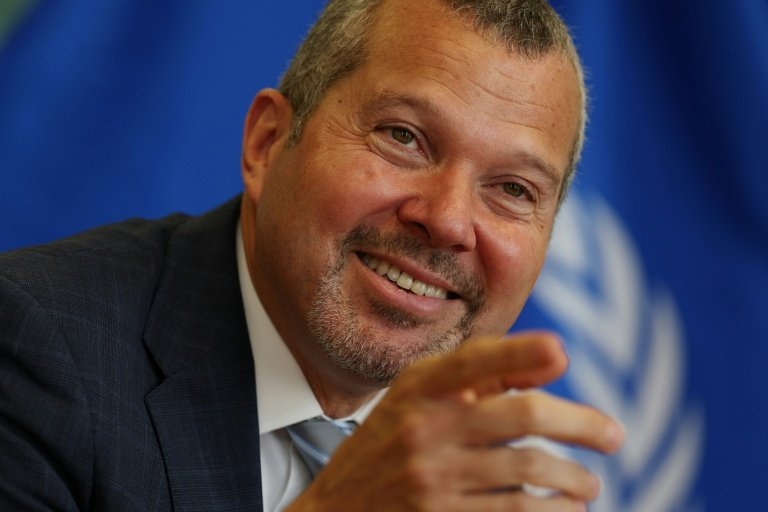US torpedoes international plan to reduce ship emissions

Member countries of the International Maritime Organization (IMO) have decided to postpone a decision on an ambitious plan to reduce pollution from ships for a year due to pressure from the United States to block the initiative.
The IMO proposal, approved in April by a large majority, was due to be ratified this Friday (17) at a meeting of the UN maritime agency that began last Tuesday in London.
The project seeks to progressively reduce carbon emissions from ships starting in 2028 and includes establishing a fee for excessively polluting vessels.
The IMO said on Friday that the vote to approve the initiative has been postponed until next year after the United States threatened sanctions on countries that supported the plan.
"I don't have much to tell you right now. It doesn't happen often," said a visibly dejected Panamanian, Arsenio Domínguez, secretary-general of the organization, whose 176 members typically make decisions by consensus.
This week, European Union countries, along with Brazil and China, reiterated their support for the "Net Zero Emissions Fund" (or NZF), which seeks to make ships pay a kind of tax on emissions that exceed a certain quota.
This tax would be used to finance a fund that rewards low-emission ships and supports countries most vulnerable to climate change.
Domínguez admitted on Tuesday, at the opening of the meeting, that the proposal “is not perfect”, but defended that it establishes a “balanced basis”.
Thursday was marked by long negotiations that lasted until dawn and which a Russian diplomat described as “chaotic.”
The Pacific island countries, which abstained in April because they considered the proposal insufficient, gave in and declared themselves in favor.
However, the United States, Saudi Arabia, Russia and other oil-producing countries opposed it.
– Trump outraged –
Washington has threatened visa restrictions, increased port tariffs, and other pressure measures against countries that vote in favor.
US President Donald Trump said Thursday he was "outraged" that the IMO voted this week to impose a "global tax" on carbon emissions and said his country would not accept such a tax on "maritime transport."
After learning of the postponement, US Secretary of State Marco Rubio celebrated what he called a "huge victory" for Trump.
"The United States blocked a massive increase in UN-imposed tariffs on American consumers that would have been used to fund progressive climate projects," Rubio responded.
For the EU, on the contrary, the postponement is “regrettable”.
The bloc is ready "to resume discussions on the agreement under the auspices of the IMO when appropriate," a European Commission spokeswoman said Friday.
"It's important to have this extra year to make a decision; we couldn't reach an agreement in two hours," the delegate from Argentina, a country that relies on significant financial support from Washington and has gone from abstaining to opposing the project, told AFP.
A Brazilian diplomat denounced the “methods” of the United States in a plenary session on Friday and expressed his hope that this attitude “will not replace the usual way of making decisions at the global level.”
A European source admitted to AFP that "many countries have changed their minds under pressure from the United States."
The International Chamber of Shipping, which represents more than 80% of the world's shipping fleet, expressed its disappointment.
“The industry needs clarity to be able to make the necessary investments to decarbonize the maritime sector,” its secretary-general, Thomas Kazakos, said in a statement.
IMO regulations are generally approved unless one-third of its 176 members object (or the equivalent of half the global merchant fleet).
The United States this week advocated changing the voting process to give more weight to abstentions.
IstoÉ





